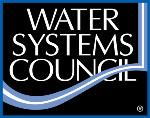
wellcare® Well Owners Network Advises Now is Best Time for Annual Water Well Maintenance; Provides Free Guidance on Well Testing and Care
WASHINGTON, D.C., May 22, 2014 – After the rains and flooding that early spring weather brought to many parts of the U.S., now is the best time for water well owners to perform annual maintenance on their water wells and septic systems, according to the wellcare® Well Owners Network, a free resource for water well maintenance, testing and education made available through the Water Systems Council.
The wellcare® program provides consumers served by wells with education and information regarding the proper construction, regular testing, and maintenance of wells and septic systems to ensure safe drinking water. Well owners can call the toll free wellcare® Hotline to ask questions on any topic related to wells and well water care, testing and maintenance at 888-395-1033. The hotline operates Monday-Friday from 10 a.m. to 5 p.m. ET. Since 2003, the wellcare® Hotline has fielded more than 70,000 questions from every state, Canada and other countries, including Afghanistan, Brazil, India, and Jamaica.
Consumers can also access the wellcare® Hotline online at wellcarehotline.org, where they can post questions and access more than 90 wellcare® information sheets that provide detailed information on various topics including basic well information, water testing, maintenance, potential groundwater contaminants, and water treatment.
In addition, well owners can sign up online for a free membership in the wellcare® Well Owners Network, where members receive quarterly newsletters with tips and tools on caring for well systems, septic systems and well water as well as discounts on water test kits. Launched in 2009 the wellcare® Well Owners Network has more than 9,000 members nationwide.
The Water Systems Council (WSC) is the only national, nonprofit organization solely focused on household wells and small water well systems. WSC is committed to ensuring that Americans who get their water from household private wells have safe, reliable drinking water and to protecting our nation’s groundwater resources. For more information, visit www.watersystemscouncil.org.
 Water Systems Council
Water Systems Council